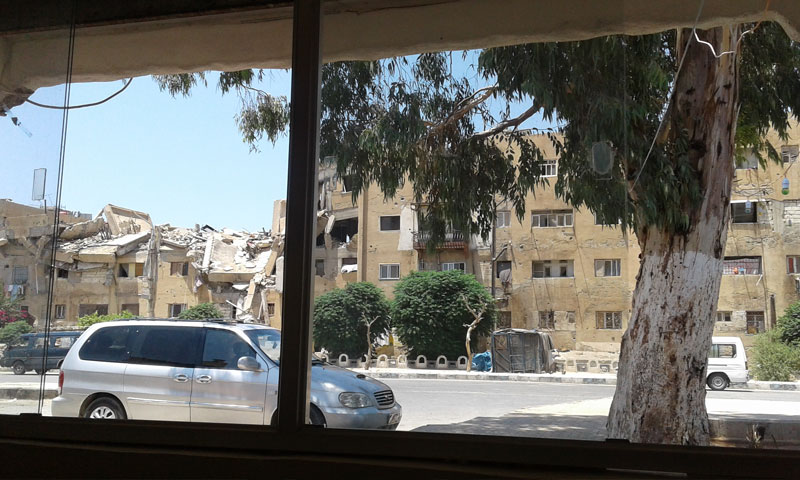



“The authority’s function provides for facilitating the life of the citizen not repressing him,” Mohammad, 23 years old, told Enab Baladi, expressing his disapproval of the system imposed by the Self-Management concerning the rental and buying of houses in the areas under its control.
Mohammad left Deir ez-Zor to the city of al-Tabqa more than a year ago, where he suffered several challenges in securing a place to accommodate his family and himself, confirming that a housing crisis does exist in the two cities of Raqqa and al-Tabqa, created by the administrative complexities in the areas controlled by the “Syrian Democratic Forces” (SDF).
Mohammad, who refused to reveal his full name for security reasons, added in an interview with Enab Baladi that “the houses are empty and many, but the difficulty of the procedures imposed by SDF has complicated the situation and especially to those coming from the eastern area.”
The Self-management orders the people willing to buy or rent a property in an area under its control to bring in the house owner or a deputy, who has an official authorization to document the rental contract at the court, and the displaced people’s ownership of an arrival’s card, which in turn requires transactions that might take more than 15 days to be conducted.
Mohammad lives in a three-room house for seven months, for which he pays monthly 35000 Syrian pounds.
The high rents are a major challenge to the people, in addition to the many documents they are supposed to be provided by the tenants, some of which carry the signature of the mayor and the administrative unit’s official, which delays obtaining a house for two additional months, as Mohammad confirmed to Enab Baladi.
Despite the fact that the rents in Raqqa and al-Tabqa are somehow similar to rents in the rest of the Syrian governorates, the deteriorating economic situation of the majority of the population makes a burden of providing such a massive sum of money, which many people cannot handle.
“I suffered a lot until I managed to provide may family with a small house. I also host my brother’s family, who so far failed to secure a house,” Mohammad added.
“That who is a part of the problem must be a part of the solution,” depending on this, Abdullah al-Ali, a resident of the city of Raqqa, said that the “Syrian Democratic Forces” and the US-led coalition must resolve the housing problem in the area.
Al-Ali, 39 years old, added telling Enab Baladi that “the US-led coalition forces have since 2015 to 2018 caused the destruction of hundreds of houses and the displacement of thousands of families. SDF has also destroyed many villages and caused the displacement of their population after the departure of the Islamic State,” stressing that SDF is partially responsible for the internally displaced people’s cause, so it is obliged to help not to repress them or impose difficult conditions.
From another perspective, some of the people who own properties in Raqqa and al-Tabqa view the self-management restrictive procedures on house’ rentals as having a positive effect for they preserve the people’s possessions.
In the two cities of Raqqa and al-Tabqa, dozens of families have lost their houses because they are either destroyed or confiscated by the “Syrian Democratic Forces” (SDF). Some families have also lost their official documents during the war, which makes it difficult for them to prove their ownership of their houses.
Fawziah al-Hussian, 43 years old, one of the people whose houses have been confiscated by “SDF,” told Enab Baladi that “I am largely dismayed as I see my family roofless, moving between rented houses, while my own house is enact but I cannot reach it.”
Fawziah (Um Omar) passes beside her house but cannot enter it. The greatest of her dreams is to have a look at the house where she lived with her husband for years, a man who was one of al-Tabqa’s dam employees, before “SDF” troops forced them to leave the house.
For a while now, the family has been living in a rented house, about which Um Omar says: “We are exhausted by the rent and daily expenses, while we are barely making our day’s living.”
In addition to confiscation under security and routine-related allegations, some of the families have lost the houses they bought during the rule of the “Islamic State,” who the Self-management refused to admit the documents they owned considering them illegal, thus leaving the families for the open air to search for a shelter.
if you think the article contain wrong information or you have additional details Send Correction